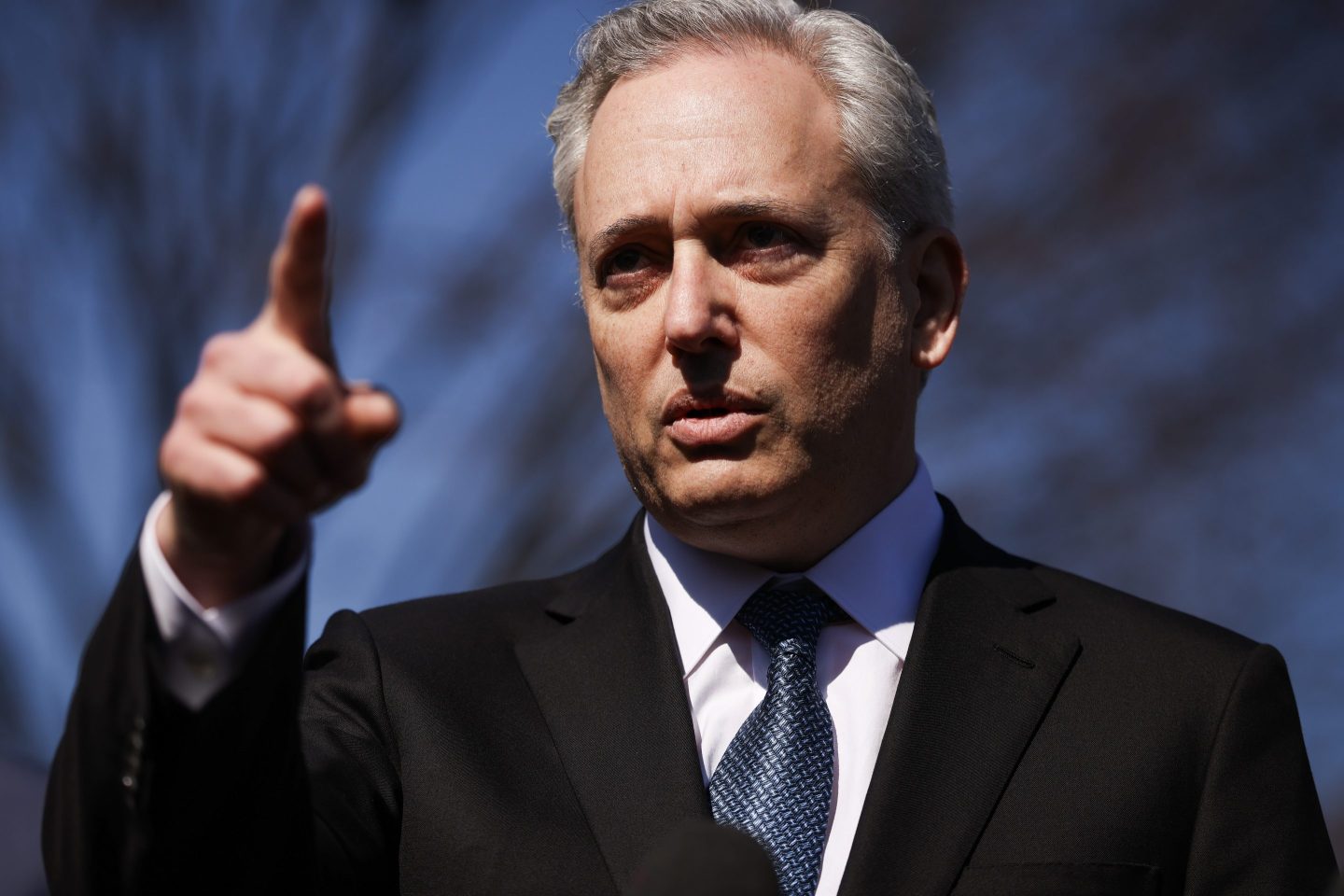Apple fired back at Spotify on Friday by sending a letter rejecting the charge it was intentionally harming the competing music service.
Spotify this week said Apple was blocking approval of its latest app for iPhones and iPads users in effort to cause it harm. But Apple general counsel Bruce Sewell told Spotify in a letter dated July 1 that the delay in approving the updated music streaming app was due to a simple violation of long-standing Apple rules.
“Our guidelines apply equally to all app developers, whether they are game developers, e-book sellers, video-streaming services or digital music distributors; and regardless of whether or not they compete against Apple,” the general counsel wrote. “We did not alter our behavior or our rules when we introduced our own music streaming service or when Spotify became a competitor.”
Spotify’s criticism was echoed by Sen. Elizabeth Warren on June 29, when she knocked Apple along with Alphabet’s Google (GOOGL) and Amazon.com (AMZN) for acting in ways to quash competition. “While Apple Music is easily accessible on the iPhone, Apple has placed conditions on its rivals that make it difficult for them to offer competitive streaming services,” Warren said, adding that the Federal Trade Commission was investigating the situation.
Get Data Sheet, Coins2Day’s technology newsletter.
In a letter to Apple, Spotify, which has some 30 million paying subscribers, said blocking its new app was “causing grave harm to Spotify and its customers,” according to a report by Recode. General counsel Horacio Gutierrez also alleged the incident “raises serious concerns under both U.S. And EU competition law.”
The real reason Spotify’s updated app, first submitted to Apple for approval May 26, has been delayed was due to a rule violation that applies to in-app purchases, Sewell explained in his letter. Companies that provide a subscription service like streaming music via an app in Apple’s app store must pay 30% of the monthly fee to Apple if a user signs up through the app. Companies may allow users to sign up for subscriptions via their own web sites or other means without paying Apple the 30% cut, but they cannot link to those other sites in the app.
Spotify had previously allowed customers to sign up inside its iPhone and iPad app for $13 per month, $3 more than Spotify’s standard charge. The extra cost covered the 30% charge for Apple.
But, Sewell wrote, the newest versions of Spotify’s app replaced the standard in-app sign up with a way to sign up for premium service via email and a web site, thus avoiding using Apple’s in-app payment set up.
“That feature exists only for the purpose of avoiding having to pay Apple for your use of the App Store by emailing customers within hours, directing them to subscribe to Spotify on its own web site,” he wrote, describing the technique as “a clear violation of the terms every other developer adheres to.”
For more on the battle between Apple and Spotify, watch:
Apple’s rules have caused pain for many other service providers, including other music and video streaming services and ebook sellers. Since many services must pay 30% or more in royalties to content owners, they can’t afford to also pay Apple’s in-app charge. So purchasing features are often left out of such apps and users are inconvenienced when they want to sign up for services, buy ebooks, or conduct other kinds of transactions. A Kindle user can’t buy a new ebook inside the Kindle iPhone app, for example, and must go to Amazon’s web site instead.
But as Apple runs the store and must cover its costs, Sewell maintained that the company has done nothing wrong. “There is nothing in Apple’s conduct that ‘amounts to a violation of applicable antitrust laws,'” Sewell wrote, quoting Spotify’s earlier charges. “Far from it.”












